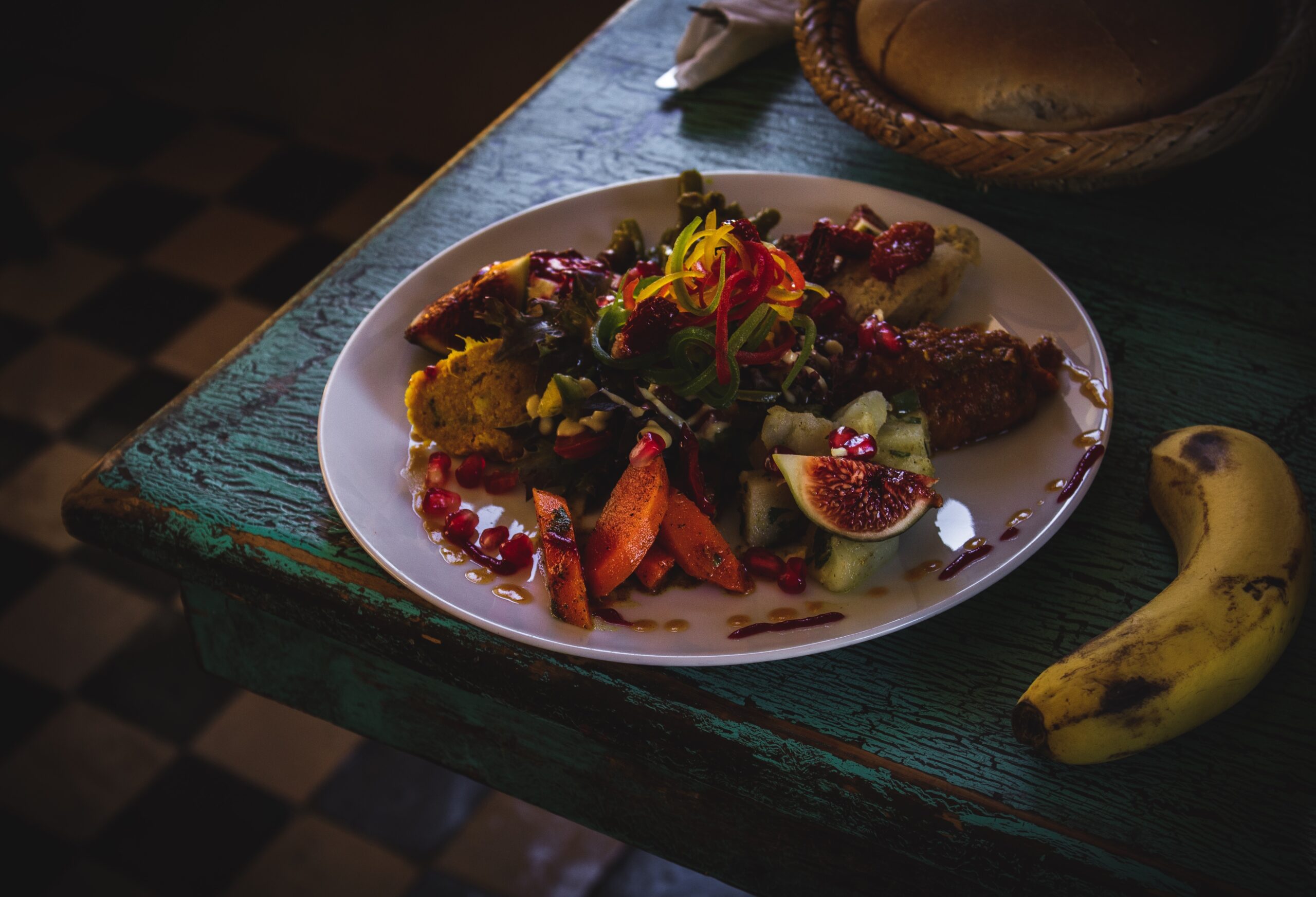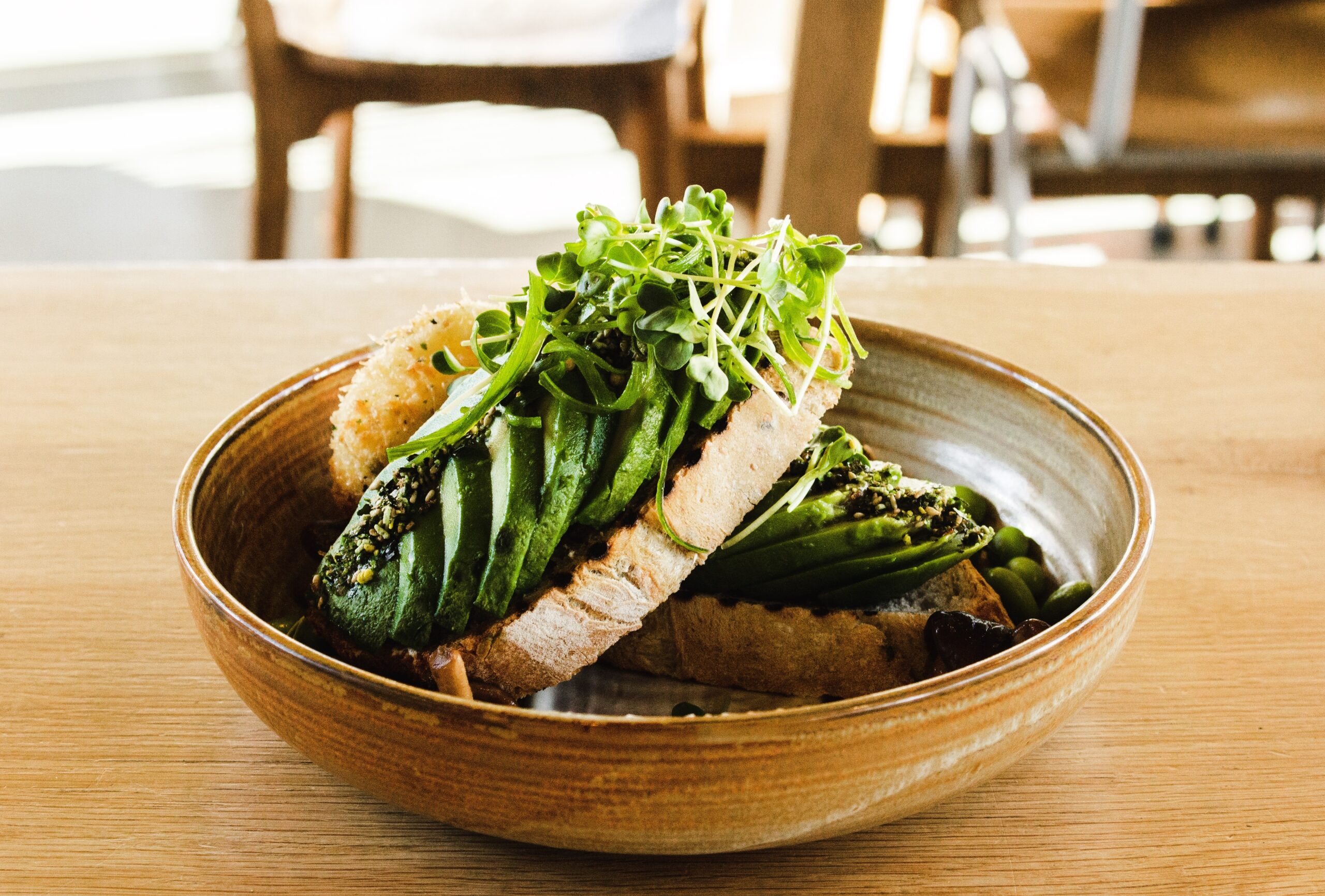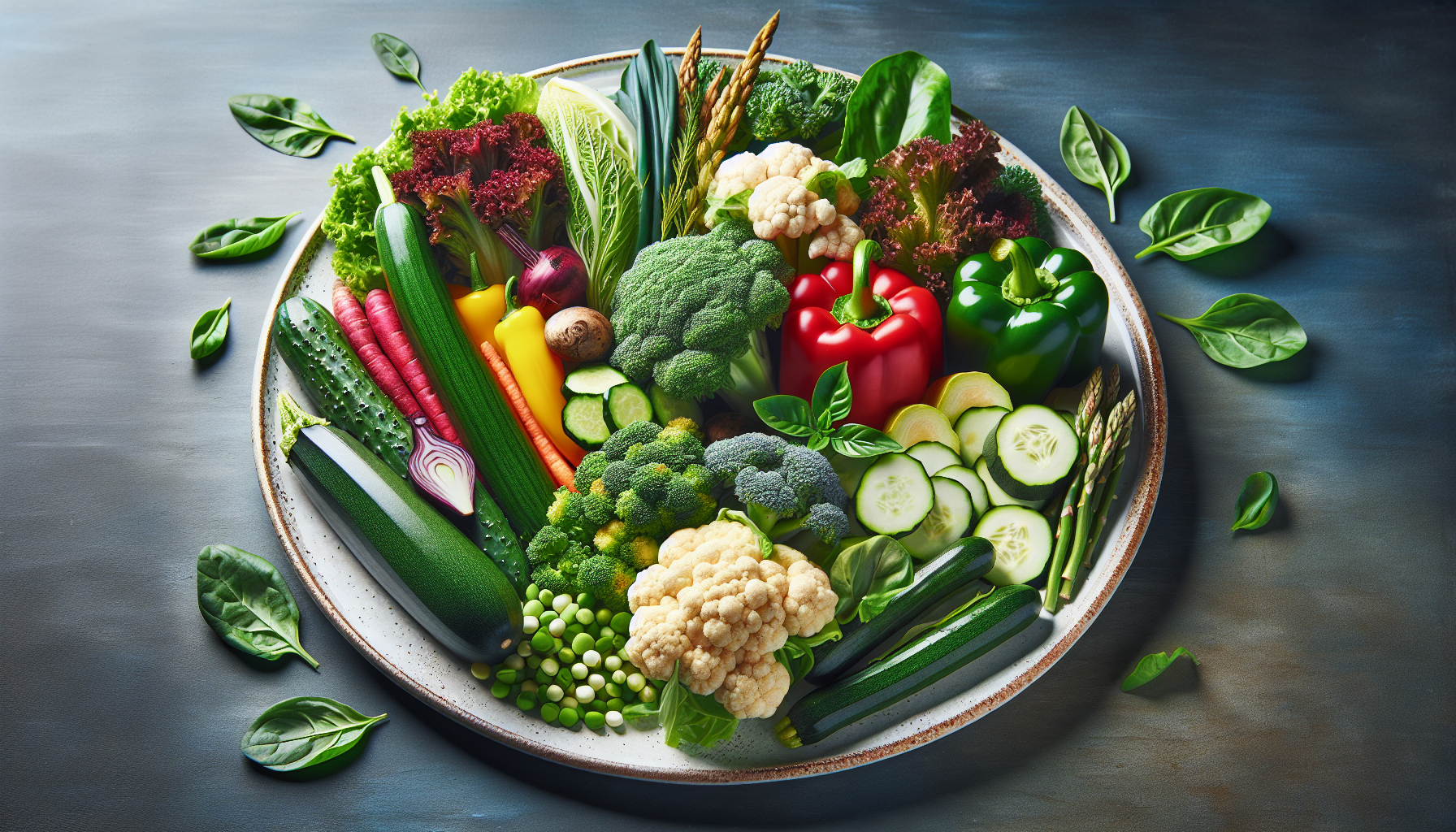So, you’ve decided to embark on a ketogenic diet, but there’s a slight twist – you’re a vegetarian or vegan. You might be wondering if it’s even possible to follow the keto diet without consuming meat or other animal products. Well, here’s some good news for you. It is indeed feasible to do the keto diet as a vegetarian or vegan, and in this article, we’ll explore how you can make it work for your lifestyle and dietary preferences. Whether you’re a firm believer in plant-based eating or simply looking to reduce your consumption of animal products, let’s find out how you can achieve ketosis while adhering to your vegetarian or vegan principles.
Understanding the Keto Diet
The keto diet, short for ketogenic diet, is a low-carb, high-fat diet that has gained popularity in recent years. The main principle behind the diet is to shift your body into a state of ketosis, where it primarily burns fat for energy instead of carbohydrates. By drastically reducing your carbohydrate intake and increasing your fat consumption, the keto diet aims to help you lose weight and improve overall health.
Defining the Keto Diet
The keto diet involves reducing your daily carbohydrate intake to around 20-50 grams per day. This forces your body to enter a metabolic state called ketosis, where it utilizes fat stores for energy. On the diet, you focus on consuming high amounts of healthy fats, a moderate amount of protein, and minimal carbohydrates. By severely limiting carb intake, your body is forced to utilize ketones, which are byproducts of the breakdown of fats, as its primary source of fuel.
How the Keto Diet Works
When you consume carbohydrates, your body breaks them down into glucose, which is used as the main source of energy. However, when you restrict your carbohydrate intake, your body begins to deplete its glycogen stores and look for alternative fuel sources. This triggers the liver to produce ketones from stored fat, which can be used by the body as an energy source. Switching to a high-fat, low-carb diet prompts your body to become more efficient at burning fat and can lead to weight loss.
Challenges of a Keto Diet for Vegetarians
While the keto diet may seem promising for weight loss and health benefits, it can pose specific challenges for vegetarians. Since the diet relies heavily on animal-based proteins and fats, vegetarian dieters need to find suitable alternatives that are still low in carbohydrates. This can be particularly challenging since many vegetarian sources of protein, such as legumes and grains, are also high in carbs.
Balancing High-Fat and Low-Carb on a Vegetarian Diet
One of the main challenges for vegetarians on the keto diet is finding the right balance between high fat and low carbs while still meeting their nutritional needs. Vegetarian options such as eggs, dairy products, and plant-based oils like coconut and olive oil can provide the necessary fats. However, it can be more difficult to find low-carb protein sources that are suitable for vegetarians. Options like tofu, tempeh, and seitan can be incorporated, but careful consideration is needed to ensure they don’t push carbohydrate intake over the limit.
Restrictive Nature of the Keto Diet
The keto diet can also be quite restrictive for vegetarians. Many common vegetarian staples, such as fruits, grains, and legumes, are limited or excluded due to their high carbohydrate content. This restriction can make it challenging for vegetarians to maintain variety in their diet and can lead to feelings of deprivation.

Sourcing Necessary Nutrients in the Keto Diet as a Vegetarian
Vegetarians who follow the keto diet need to carefully plan their meals to ensure they obtain the necessary nutrients. While animal-based proteins and fats are common on the keto diet, vegetarians need to find plant-based options that are low in carbs but still provide adequate essential nutrients. Adequate intake of vitamins, minerals, and fiber can be achieved through a combination of low-carb vegetables, nuts and seeds, and vegetarian sources of omega-3 fatty acids, such as flaxseeds and chia seeds.
Challenges of a Keto Diet for Vegans
For vegans, who avoid all animal products, the challenges of following a keto diet are even more pronounced. The diet’s heavy reliance on animal-based protein and fat sources poses a significant obstacle for those following a plant-based lifestyle.
Finding Vegan Sources of High-Fat Foods
The keto diet typically encourages the consumption of high-fat foods such as eggs, dairy, and animal fats. However, with the elimination of animal products, vegans need to find alternative sources that are still low in carbs. Avocado, coconut oil, nuts, and seeds are excellent vegan options for obtaining healthy fats without exceeding carbohydrate limits.
Complications of Maintaining Ketosis on Vegan Diet
Since a vegan diet naturally contains more carbohydrates due to its emphasis on plant-based foods, maintaining ketosis can be more challenging. Vegans may need to be more vigilant in tracking their macronutrient intake to ensure they stay within the desired range. It may also require more discipline and planning to achieve and maintain ketosis on a vegan diet.
Difficulty of Getting Necessary Nutrients as a Vegan on Keto
While a well-planned, balanced vegan diet can provide all the necessary nutrients, the keto diet’s restrictions can make it more difficult for vegans to obtain certain essential nutrients. Key nutrients that may require special attention include vitamin B12, iron, omega-3 fatty acids, and calcium. Vegans on a keto diet may need to consider supplements or carefully select fortified foods to ensure they meet their nutritional needs.
Vegetarian Foods for the Keto Diet
For vegetarians on the keto diet, there are still plenty of options to choose from. Some vegetarian foods that are low in carbs and suitable for the keto diet include eggs, cheese, Greek yogurt, cottage cheese, tofu, tempeh, seitan, almonds, kale, spinach, broccoli, avocado, and olives. With these options, vegetarians can create delicious and satisfying meals while staying within their carbohydrate limits.

Detailed Look Into Different Vegetarian Protein Sources Suitable for Keto
While meat is a common protein source on the keto diet, vegetarians can still obtain sufficient protein from plant-based sources. Eggs, dairy products, tofu, tempeh, and seitan are excellent vegetarian protein sources that are also low in carbs. By incorporating a variety of these protein sources into their meals, vegetarians can meet their protein needs while adhering to the keto diet.
Example Meal Plans for Vegetarian Keto Dieters
To get started on a vegetarian keto diet, here are a few sample meal plans to help you understand how to incorporate the right balance of fats, proteins, and low-carb vegetables:
- Breakfast: Scrambled eggs cooked in coconut oil with spinach and feta cheese.
- Lunch: Tofu stir-fry with low-carb vegetables like bell peppers, broccoli, and mushrooms, cooked in olive oil.
- Snack: Almonds and celery sticks with guacamole.
- Dinner: Zucchini noodles with a creamy coconut milk-based sauce, topped with grilled tofu.
- Dessert: Chia seed pudding made with almond milk and topped with unsweetened coconut flakes.
Vegan Foods for the Keto Diet
While it may require additional planning and creativity, it is possible for vegans to follow a keto diet. Some vegan-friendly foods that are low in carbs and suitable for the keto diet include coconut oil, avocados, nuts, seeds, non-starchy vegetables like leafy greens, cauliflower, zucchini, and tofu/tempeh. These foods can form the foundation of a vegan keto diet and provide the necessary fats while keeping carbohydrate intake in check.
Exploring Vegan High-Fat Food Sources for Keto
Vegans can rely on various high-fat foods to meet their fat macro requirements on the keto diet. Coconut oil, almond butter, chia seeds, flaxseeds, hemp seeds, and avocados are excellent sources of healthy fats. By incorporating these into their meals and snacks, vegans on the keto diet can ensure they are meeting their dietary needs while adhering to the principles of the diet.
Vegan Recipes for Keto Dieting
To help you get started on a vegan keto diet, here are a few recipe ideas that are both delicious and suitable for the diet:
- Vegan Coconut Curry with Cauliflower Rice: A flavorful curry made with coconut milk, spices, and vegetables, served with cauliflower rice.
- Avocado and Zucchini Noodle Salad: Spiralized zucchini noodles mixed with diced avocado, cherry tomatoes, and a tangy dressing made from lemon juice and olive oil.
- Vegan Tofu Scramble: Crumbled tofu cooked with vegetables and seasoned with turmeric, cumin, and nutritional yeast, served with a side of sautéed spinach.
- Chocolate Avocado Mousse: A rich and creamy dessert made with ripe avocados, unsweetened cocoa powder, and a natural low-carb sweetener like stevia or erythritol.
Health Implications of Vegetarian or Vegan Keto Diet
When considering a vegetarian or vegan keto diet, it is important to understand the potential nutritional deficiencies that may arise. Both vegetarian and vegan diets can lack certain essential nutrients such as vitamin B12, iron, omega-3 fatty acids, and calcium. It is crucial to carefully plan meals and consider appropriate supplementation to ensure adequate intake of these nutrients.
Positive Health Aspects of Combining Vegan/Vegetarian and Keto
Although there can be challenges, combining the principles of a vegan or vegetarian diet with the keto diet can offer several potential health benefits. Some individuals may experience improved weight management, increased mental clarity, reduced inflammation, and better blood sugar control when following a vegan or vegetarian keto diet. Additionally, this dietary approach may lead to a higher intake of plant-based fibers, vitamins, and minerals, which can support overall health and well-being.
Research on Long-Term Impacts of Vegan/Vegetarian Keto Dieting
While there is limited research specifically on the long-term impacts of a vegan or vegetarian keto diet, studies on the individual components of these diets provide some insights. Research suggests that a well-planned vegetarian or vegan diet can be nutritionally adequate, and the inclusion of healthy fats from plant sources can have positive effects on various health markers. However, more research is needed to understand the long-term effects of following a vegan or vegetarian keto diet specifically.
Role of Supplements in Vegetarian or Vegan Keto Diets
Supplements can play a crucial role in meeting nutrient needs while following a vegetarian or vegan keto diet. Since these dietary approaches may have limitations in obtaining certain nutrients, supplements can ensure adequate intake. Some important supplements to consider include vitamin B12, iron, omega-3 fatty acids, and calcium. It is recommended to consult with a healthcare professional or registered dietitian to determine which supplements are necessary for your specific needs.
Importance of Supplementing Diet with Essential Nutrients
Supplementing the diet with essential nutrients is especially important for vegetarians and vegans on the keto diet due to the potential deficiencies in key micronutrients. Nutrients such as vitamin B12, iron, and omega-3 fatty acids are primarily found in animal products, and their absence in a vegan or vegetarian diet can lead to deficiencies if not adequately addressed through supplementation.
Recommended Supplements for Vegan/Vegetarian Keto Dieters
Some recommended supplements for vegan and vegetarian keto dieters include:
- Vitamin B12: Since this vitamin is primarily found in animal products, supplementation is essential for vegans and vegetarians.
- Iron: Plant-based iron sources are less readily absorbed by the body compared to animal-based iron. Iron supplementation can help prevent deficiency, especially for menstruating individuals.
- Omega-3 Fatty Acids: Vegans can consider algae-derived omega-3 supplements to ensure an adequate intake of EPA and DHA, which are typically obtained from fish sources.
- Calcium: Calcium supplements or fortified plant milk can help meet daily calcium requirements, which are important for bone health.
How to Safely Incorporate Supplements Into Your Diet
When incorporating supplements into your vegetarian or vegan keto diet, it is essential to choose high-quality supplements from trusted sources. Be sure to follow the recommended dosage instructions and consult with a healthcare professional or registered dietitian to determine the appropriate supplements for your specific needs. Supplements should complement a well-rounded diet and should not be used as a substitute for whole food sources of nutrients.
Considerations for Personal Meal Planning
When personalizing a vegan or vegetarian keto diet, it is crucial to consider your individual dietary preferences and restrictions. Take into account any allergies, intolerances, or personal taste preferences when planning your meals. Experiment with different vegetarian or vegan keto-friendly foods and recipes to find what works best for you.
Adjusting Macros for Individual Needs
The macronutrient ratios in the standard keto diet may not suit everyone’s needs. Personalizing your macronutrient ratios according to your individual goals, activity level, and health conditions can help optimize your results. Adjusting the proportions of fat, protein, and carbohydrates to fit your specific needs can make the vegan or vegetarian keto diet more sustainable and effective for you.
Tips for Successful Transitioning into Keto on a Vegan or Vegetarian Diet
Transitioning into a vegan or vegetarian keto diet can be challenging, but with the right approach, it can be a sustainable and rewarding dietary choice. Here are some tips to help you successfully navigate the transition:
- Educate Yourself: Learn about the principles of the keto diet, the nutrients you need to pay attention to, and the food options available to you as a vegan or vegetarian.
- Plan Your Meals: Take the time to plan your meals in advance to ensure you are meeting your nutritional needs while staying within the carbohydrate limits of the diet.
- Experiment with Recipes: Get creative in the kitchen and try out new recipes that are both delicious and compatible with the vegan or vegetarian keto diet. This will help keep your meals exciting and varied.
- Stay Hydrated: Drink plenty of water throughout the day to support your body’s overall health and facilitate the transition into ketosis.
- Listen to Your Body: Pay attention to how your body responds to the diet. Adjust your macros or food choices if necessary to ensure you are feeling satisfied and obtaining the necessary nutrients.
Examples of Successful Vegan/Vegetarian Keto Dieters
There are numerous success stories of individuals who have successfully followed a vegan or vegetarian keto diet. These individuals have experienced weight loss, improved energy levels, and various other health benefits. Their stories serve as inspiration for those considering or already following a vegan or vegetarian keto diet.
Detailed Case Studies Illustrating Diet Planning and Progression
In-depth case studies can provide valuable insights into the practical aspects of planning and progressing on a vegan or vegetarian keto diet. These case studies highlight the challenges, successes, and strategies employed by individuals who have followed a vegan or vegetarian keto diet. They can serve as a guide for others seeking to embark on a similar journey.
Relating Personal Anecdotal Experiences
Many people who have followed a vegan or vegetarian keto diet have shared their personal experiences and anecdotes online. These firsthand accounts describe the ups and downs, the challenges and rewards, and the overall impact the diet has had on their lives. Reading these stories can help you gain a better understanding of what to expect and find motivation in knowing that others have succeeded on this dietary path.
Summary and Verdict On Vegan/Vegetarian Keto Diet
In summary, the vegan or vegetarian keto diet can be a challenging but potentially beneficial dietary approach. It requires careful planning and consideration to ensure adequate nutrient intake while maintaining ketosis. While there are potential challenges and nutritional considerations, many individuals have successfully followed a vegan or vegetarian keto diet and experienced positive health outcomes.
Whether the vegan or vegetarian keto diet is recommended for you will depend on your individual health goals, lifestyle, and dietary preferences. It is essential to consult with a healthcare professional or registered dietitian to assess your specific needs and determine if this dietary approach is suitable for you.
In conclusion, while the vegan or vegetarian keto diet may not be suitable for everyone, it can be an effective way to improve weight management and overall health for those who choose to follow it. With careful planning, supplementation, and personalization, it is possible to meet nutritional needs and achieve success on a vegan or vegetarian keto diet.
Remember to always prioritize your health and well-being, and consult with professionals who can provide individualized guidance for your specific dietary requirements.


